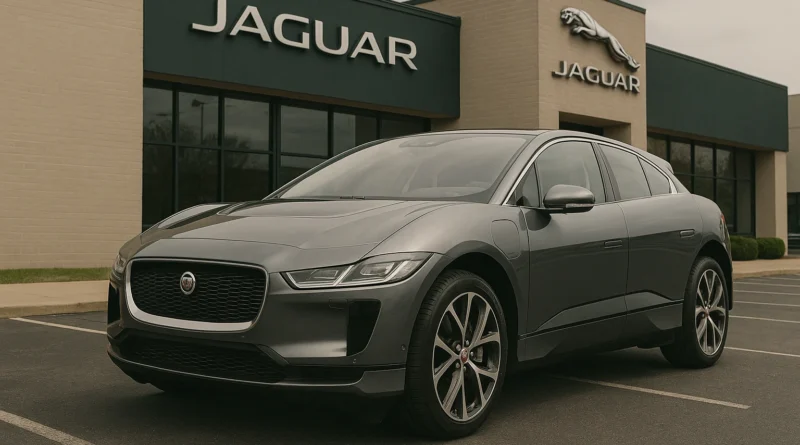Jaguar Sales Plummet After Radical Rebrand, Raising Questions on Luxury EV Strategy
LONDON, UK – July 1, 2025 – Luxury automaker Jaguar is facing a dramatic downturn in sales following its ambitious and controversial rebranding initiative, which aims to transform the iconic British marque into an ultra-exclusive, all-electric brand by 2025. Recent figures reveal a near-total collapse in European sales, sparking concerns among industry analysts and loyal customers.
According to data from April 2025, Jaguar recorded a staggering 97.5% plunge in European sales, with only 49 new vehicle registrations compared to 1,961 units in the same month last year. Year-to-date figures for the first four months of 2025 show a 75.1% decrease in registrations across Europe and the UK. Globally, sales reportedly fell from 61,661 vehicles in 2022 to 33,000 in 2024, a nearly 50% drop.
A Bold, Divisive Reimagining
The precipitous decline coincides directly with Jaguar’s radical brand overhaul, which commenced in November 2024. The strategy involves a complete reinvention, shedding the brand’s long-standing heritage elements, including the iconic leaping cat badge, in favor of a minimalist wordmark and a new mantra: “Copy nothing. Delete ordinary.” The accompanying marketing campaigns featured cryptic videos with high-fashion models but conspicuously no cars, aiming to appeal to a new demographic of “cash-rich, time-poor” millennials and Gen Z.
This dramatic pivot is part of Jaguar’s stated goal to become an exclusively electric vehicle (EV) brand, with future models expected to command price tags upwards of £100,000 (approximately $140,000-$170,000).
Factors Behind the Sales Freefall
Several key factors are being cited for the alarming sales performance:
- Product Lineup Purge: In preparation for its all-electric future, Jaguar phased out nearly its entire current gasoline-powered lineup, including the XE and XF sedans, F-Type sports car, and E-Pace and I-Pace crossovers. This left dealers with virtually no new inventory to sell, creating a commercial vacuum. Only a limited number of the F-Pace SUVs remain in production.
- Alienation of Core Clientele: The radical departure from Jaguar’s traditional image and heritage has largely alienated its established, older customer base, who valued the brand’s classic British elegance and performance. Jaguar’s managing director, Rawdon Glover, has openly stated the company is “fine with losing its current customer base,” anticipating that approximately 85% of existing buyers will be priced out of the new, higher-end EV segment.
- Marketing Missteps: The car-free, abstract marketing campaigns were widely criticized as “woke” and disconnected from the brand’s automotive essence, leading to confusion and ridicule, including a pointed question from Elon Musk: “Do you sell cars?”
- Lack of Immediate Replacements: The decision to discontinue most models before new electric replacements are ready has left a significant gap in the market, with the first new production EV, a four-door GT, not expected until late 2025 for a 2026 showroom launch.
The Road Ahead: A Risky Bet
Despite the current sales crisis for the Jaguar brand, its parent company, Jaguar Land Rover (JLR), remains profitable, largely bolstered by the robust performance of the Land Rover brand. This financial stability provides a crucial buffer, allowing Jaguar to pursue its ambitious, high-risk transformation.
The company is betting heavily on its future electric lineup and a repositioning into an ultra-luxury, niche segment, even if it means sacrificing significant sales volume in the interim. Jaguar also plans to drastically reduce its global dealer network, focusing on fewer, more exclusive “curated brand stores.”
Whether this bold gamble will ultimately pay off remains to be seen. The coming years will be critical in determining if Jaguar can successfully shed its past and establish itself as a compelling force in the burgeoning high-end EV market, or if its radical rebrand will be remembered as a costly miscalculation.

